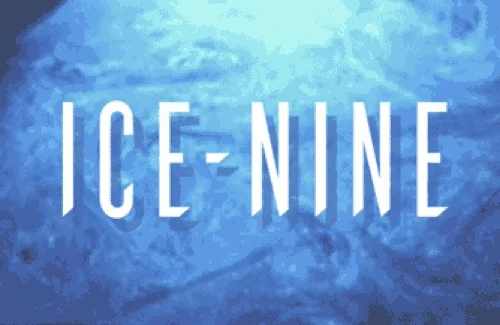Originally published at: Reading science fiction for the first time | Boing Boing
…

This was my experience with Ringworld, and also Fire Upon the Deep (when wolves started talking).

This is why Fantasy is so popular as a genre, and viewed by some as so incredibly hackneyed. It relies on familiar tropes - or at least tropes that people can think of as familiar. Elves, Dwarves, Fairies, Barbarians, Wizards, Knights, Dragons - many of these are referenced in children’s stories anyway. They don’t need much explaining.
By contrast when you try to do something from a new point of view it’s incredibly difficult. I think the most successful one I can think of is Isaac Asimov’s “The Gods Themselves”, which has a truly remarkable representation of non-terrestrial life.
And I should say that when I call Fantasy hackneyed, the same is said of much Sci-Fi that doesn’t attempt more unusual representations. There’s plenty of very lazy work out there in both genres…
I once tried to write a story from the perspective of a squid-like creature on an early inter-stellar craft. It was hard. Very hard. Mostly because I needed to introduce the reader gently to the concepts and reasons. That the protagonist is completely non-human wasn’t intended to be a big reveal of any kind - if had to just be something that the reader realised, and felt appropriate.
Unfortunately I already have all the reasoning behind that non-human form in my mind, and therefore I had to be very careful about how I wrote things. I had to set up that there was a difference, and gradually slip details out so that the reader could understand. First let them know that the protagonist knows that they’re not human, then that they’re biological and water-dwelling, and so on.
The incredibly difficulty of this is also why that book hasn’t been worked on for about a decade. Maybe sometime I shall return to it. But not any time soon!

Can anyone really consider Asimov fresh today?
Or deny Tolkien’s inventiveness?
Just because something is referenced in the past, doesn’t mean there isn’t value that can be derived from returning to them… Tolkein did innovative things with mythology, as did Terry Pratchett and George RR Martin, not to mention writers like NK Jeminsen, Marlon James, and Nnedi Okorafor, who are decentering the eurocentric tropes and introducing western readers of fantasy into a very different set of myths. Jeminsen’s Broken Earth triology really breaks some new ground in fantasy…
Besies, that there is something to be said for accessing commonly held myths and turning them on their head - see Pratchett for that, where we all are familiar with elves, vampires, werewolves, dwarves, cops, witches, politicians, wizards, etc, but he managed to make them more relevant than ever to a modern reader. I can think of no other modern fantasy series that is more relevant that the Discworld books.
Also, are you saying that children’s literature can’t be worthwhile and interesting? Given that tons of both genres are aimed at children, and some of it is quite good.
Right? He didn’t just slap some elves and orcs on the page and call it a day - he built an entire complex universe, complete with languages and one of the deepest backstories one can find in almost any literature. The fact that one can’t write a eurocentric fantasy today without thinking about Tolkien really says it all…
And of course, if you think about it, much science fiction is ALSO a kind of fantasy, because in many sci-fi stories - we’re imaginging a future that might not exist one day. There is plenty of sci-fi that is not “hard” sci-fi like, say, Kim Stanley Robinson who tries pretty hard to hew to what we can project into the future that could exist based on what we know today… but stuff like Dune and even Asimov’s Foundation series are so far in the future, that they hardly bear any resemblance to our direct future in space and have often fantastical elements to them.
We really should take both genres seriously, because I think they are both the best at pinning down our modern condition. I like literary fiction as much as the next person, but sci-fi/fantasy allows us to imagine very different things will still focusing on our common humanity…
My understanding is that Asimov’s freshness is one of his major character flaws that requires separation of artist from art these days… ![]()
As to whether his writing is still worthwhile - well, that depends on the writing. The Lucky Starr series has a certain retro charm, but is very much pulp fiction. Which brings to mind the obvious question - by what criteria are we judging the writing?
Personally I’d probably happily re-read Pebble In The Sky or The Gods Themselves before I re-read many more modern books…
I’d read the Norse and Celtic myths before I read Tolkien, and I had a deep seated suspicion that he was ripping them off.
My friends who had recommended Tolkien to me where aghast at this opinion, and naturally corrected me - apparently the correct term is “forging a modern mythology”. ![]()
But I still think he was stealing the scenery of the old Norse and Celtic myths. That’s not to say that he didn’t do something interesting with that scenery. But it sure is comfortably familiar…
By the feelings it it evokes in the readers? By how smart it makes one feel? By the erotic effect? Whether it surprises you? Whether it confirms your biases?
If it fits in your beach bag?
As others have pointed out, fantasy is often full of new concepts. Meanwhile I’d like to also point out science fiction doesn’t have to be. Early works where they feel the need to explain how the warp engines work and how a planet can have multiple suns have given way to ones where they trust you know all that and cut to the story.
Which isn’t necessarily a bad thing either. So many zombie stories still have characters who marvel that there are some sort of ambulatory corpses that hunger, instead of just calling them zombies.
Me, trying to get past those first few pages:
Why no, I haven’t read “Dune,” why do you ask?
I think the two have always been seen as equal offenders - of both overuse of impenetrable terms and/or relying on familiar cliches. On one side you have the Tolkien/D&D imitators, but on the other you have Star Trek/Star Wars/Heinlein etc. imitators; both include authors who mistake coming up with new words for things for world-building. But fantasy and sci-fi are both incredibly vast - if you’re seeing a disproportionate number of imitators, it’s because of a selection bias going on at some point, not because they’re representative of the genre.
Also, the existence of elements in fantasy stories that originate from folklore isn’t all that different from some of the common tropes of sci-fi that are in fact just cliches made up by early 20th century authors, now erroneously seen as “science-based” when they’re not - at all.
It’s pretty well known that northern European mythology, so I’m not sure why your friend would be “aghast”… none the less, Tolkien took those elements and built a comprehensive universe.
Absolutely. I wasn’t saying that you can’t do good work with instantly recognisable material - I was merely pointing out that it’s incredibly difficult to work well with the unfamiliar.
That’s not to say that one is more worthy or less worthy. Just that one is easier. The scenery (for want of a better word) is only one part of a good story.
Nope, I wasn’t saying that. Far from it.
It is worth noting that most material aimed at very young children has strong association with fantasy tropes simply because they are borrowing from a corpus that dates back thousands of years. That does not make it better or worse, it’s just something to bear in mind when looking at how easily relatable a scenario is. Which is what the video was about.
Agreed. Well said! ![]()

I’m sorry, but what do you mean by that?
Asimov has not aged well into modern times, and rightfully so, but he was the start of my lifelong love for SF.
So, Asimov’s Foundation series had literally NO influences like Tolkien did with Northern European mythologies? Not even the ones he referenced himself, such as The History of the Decline and Fall of the Roman Empire? ![]()
There is no work of fiction (or non-fiction) that is free from influence from other things. That’s not how cultural production works. You need a foundation (ha ha) in some commonly shared background to make it intelligible to your audience, even when you’re attempt to carve out new cultural space. Sci-fi is just as much rooted in things known as fantasy.
Isaac Newton: “If I have seen further it is by standing on the shoulders of Giants.”
Everything we do stands upon hundreds of thousands of years of culture.